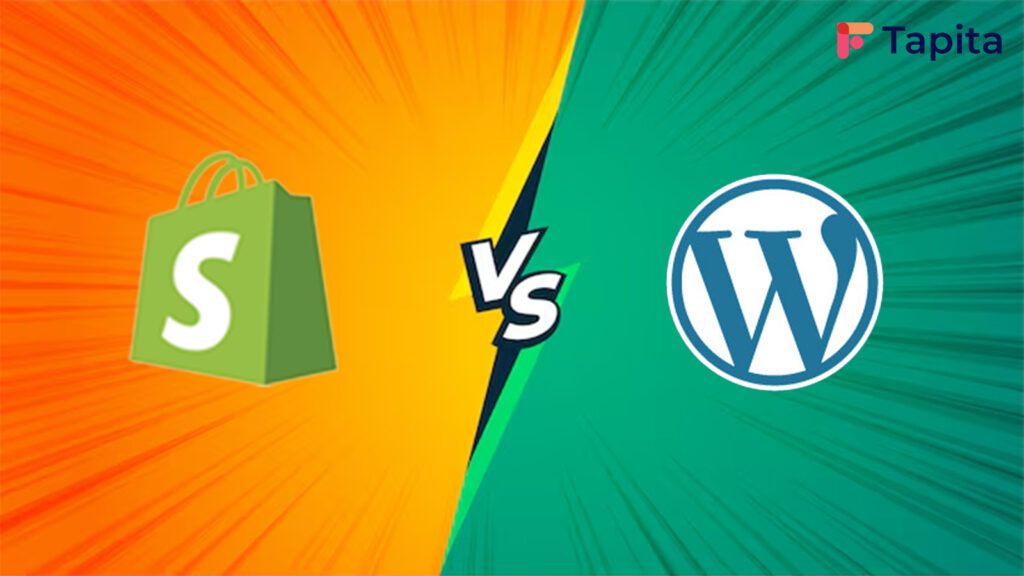When you’re setting up an online store, choosing the right website platform is super important. There are lots of options out there, but two big ones are Shopify and WordPress. Both let you sell stuff online, but they work a bit differently.
Shopify is great if you want something easy to use that’s all about selling stuff online. On the other hand, WordPress is more flexible.
In this blog, we’ll talk about both Shopify and WordPress and explain what they can do and how they’re different.
Let’s figure out which one might be best for you!
Shopify Overview
Shopify is an e-commerce platform that allows individuals and businesses to create and manage their online stores. It provides tools for designing websites, managing inventory, processing payments, and marketing products, making it easier for people to sell goods and services online.

Shopify Pros
With Shopify, everything’s in one place for a hassle-free online store. Just log in and start!
- All-in-One Platform: Shopify provides all the tools needed to run an online store in a single platform, including website design, inventory management, payment processing, and diverse custom theme library. This simplifies setup and management.
- User-Friendly Interface: Shopify’s interface is designed to be easy to use, allowing store owners to navigate and manage their stores without extensive technical knowledge.
- Point-of-Sale Integration: Store owners can seamlessly integrate online and in-person sales through Shopify’s POS system, streamlining operations for businesses with physical locations.
- Scalability: Shopify offers various pricing tiers and scalable options, allowing store owners to start small and expand as their business grows without worrying about outgrowing the platform.
- Reliability and Support: Shopify is known for its strong security and extensive support, providing peace of mind to store owners.
Shopify Cons
- Limited Customization: With Shopify, you can change things up, but it might not give you as much freedom as other platforms like WordPress. You might not have total control over how your site looks and works.
- Advanced SEO: Shopify helps with basic SEO features, but if you want to get advanced with your SEO, it might not give you as much control as other platforms like WordPress.
- Cost: While Shopify is convenient, it can be pricey. The monthly fees can add up, especially if you have lots of sales. Also, some fancy themes and apps cost extra.
- Transaction Fees: If you don’t use Shopify Payments for handling payments, you might get charged extra fees for each transaction. This can cut into your profits.
WordPress Overview
WordPress is a popular content management system (CMS) that allows users to create and manage websites easily. Originally designed for blogging, WordPress has evolved into a versatile platform used by individuals, businesses, and organizations to build websites of various types, from blogs and portfolios to e-commerce stores and corporate websites.

WordPress Pros
For unique features and designs of store in your own way, WordPress offers endless customization options, though it requires more effort.
- Free Open-Source: WordPress is free for everyone to use. It’s a great option for individuals and businesses of all sizes.
- Limitless Customisation: With WordPress, you can make your site unique. There are thousands of themes and plugins to choose from for blogs, businesses, or online shops.
- User-Friendly Interface: WordPress is easy to use, especially for beginners. You’ll find lots of helpful resources and a supportive community to guide you along the way.
- SEO-Friendly: WordPress helps your site rank well on search engines. It offers SEO plugins like Yoast SEO to make it easy to optimize your site.
- Ownership and Control: When you use WordPress, you’re in charge. You decide where to host your site, back up your data, and set your own rules.
WordPress Cons
- Security Risks: Since WordPress is open-source and widely used, it can be a target for hackers. Without proper security measures, your site could be vulnerable to attacks.
- Learning Curve for Customization: While WordPress is user-friendly and offers extensive customization options, mastering more advanced features may require some time and effort, especially for beginners.
- Plugin Compatibility: Not all plugins are created equal, and some may not be compatible with your WordPress theme or other plugins, leading to conflicts and functionality issues.
- Cost: Although WordPress software is free, you’ll need to set aside funds for hosting, domain registration, and possibly premium themes and plugins.
Shopify vs. WordPress: A Comparison
A Quick Comparison
Let’s focus on what matters most to business owners when comparing website builders. That’s why we chose these features to evaluate these two online store builders, provided in this table:
| Features | Shopify | WordPress |
|---|---|---|
| Ease of Use | All-in-one platform with easy drag-and-drop interface for simplified setup, yet the editor restricts freedom | Initially requires some technical know-how for full customization, but can be simplified with plugins |
| Pricing | Monthly subscription fees (from $25 to $399) | Free of charge, but requires separate hosting and domain costs |
| Plugins/Apps | Extensive selection of paid ecommerce apps, complemented by a robust app store | Vast plugin library for various functions, of over 60,000 choices, though quality can vary |
| Themes/Templates | Professionally designed themes, though mostly paid, ranging from $60 to $360; only 12 free options | Over 12,000 free themes, with many suitable for ecommerce |
| SEO and Marketing | Built-in SEO and marketing features, but not as customizable as WordPress | Requires additional plugins with a possible extra cost for deeper SEO control |
| Security | Managed platform with built-in security features | Needs regular plugin updates and maintenance for optimal security |
| Support | Excellent customer support, available 24/7 through various channels and active community | Extensive online community, but more limited than Shopify’s support features |
Ease of Use
Shopify is beginner-friendly with drag-and-drop tools and tutorials. It prompts you to add products first, streamlining the process. Shopify Magic, an AI generation tool in Shopify, helps you create product descriptions.

However, customizing beyond e-commerce features can be tricky as they are the editor’s main focuses.
On the other hand, WordPress lacks a drag-and-drop editor but offers website-building plugins. It’s more complex and requires basic coding skills. You’ll need an e-commerce plugin for online selling. We recommend using Elementor – WordPress plugin that allows users to easily create and customize websites using a drag-and-drop interface.
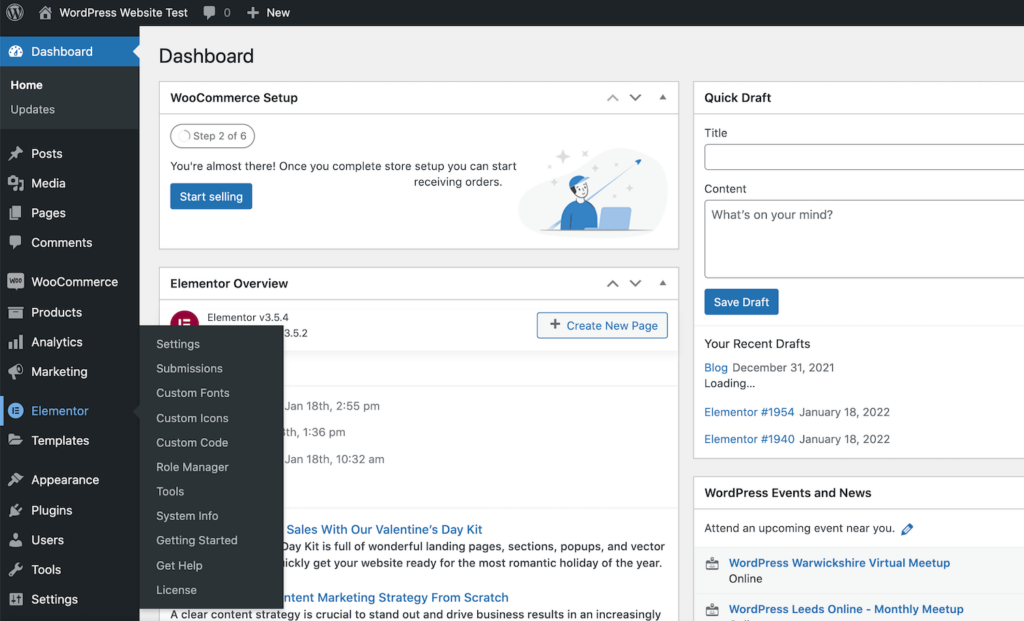
To sum up:
With Shopify, although there’s less effort involved, you’ll need to learn to navigate its editor or hire a web developer to customize your site. Conversely, WordPress offers various website-building plugins, providing greater ease of use and customization options.
Pricing
Shopify’s expenses are its monthly subscription plans, which vary from $25 to $399. The plan you choose determines features like product uploads, storage, staff accounts, and reporting tools. While using Shopify Payments skips the need for an external payment gateway, it does come with a transaction fee of 2.9% plus 30 cents for each online sale.

In contrast, WordPress is mainly free. However, building a WordPress website involves additional expenses such as domain name, hosting, themes, and plugins. In addition, while there are many free themes available, some users might prefer premium themes for extra customization features, which usually require a one-time payment.
To Sum up:
WordPress is the budget-friendly option here. If you’re watching your wallet, WordPress is the way to go, though keep in mind that premium plugins may increase your expenses over time.
Plugins/Apps
Shopify’s got a whopping 8,000+ apps waiting for you in its app store! Each of these apps is designed to boost your store’s performance, and Shopify thoroughly vets them over 100 times before they hit the official store shelves.

WordPress is the king of plugins, boasting nearly 60,000 options to pick from! While most are freebies, some come with a price tag, ranging from $10 to $200 per month, or a one-time payment of $100 to $500.
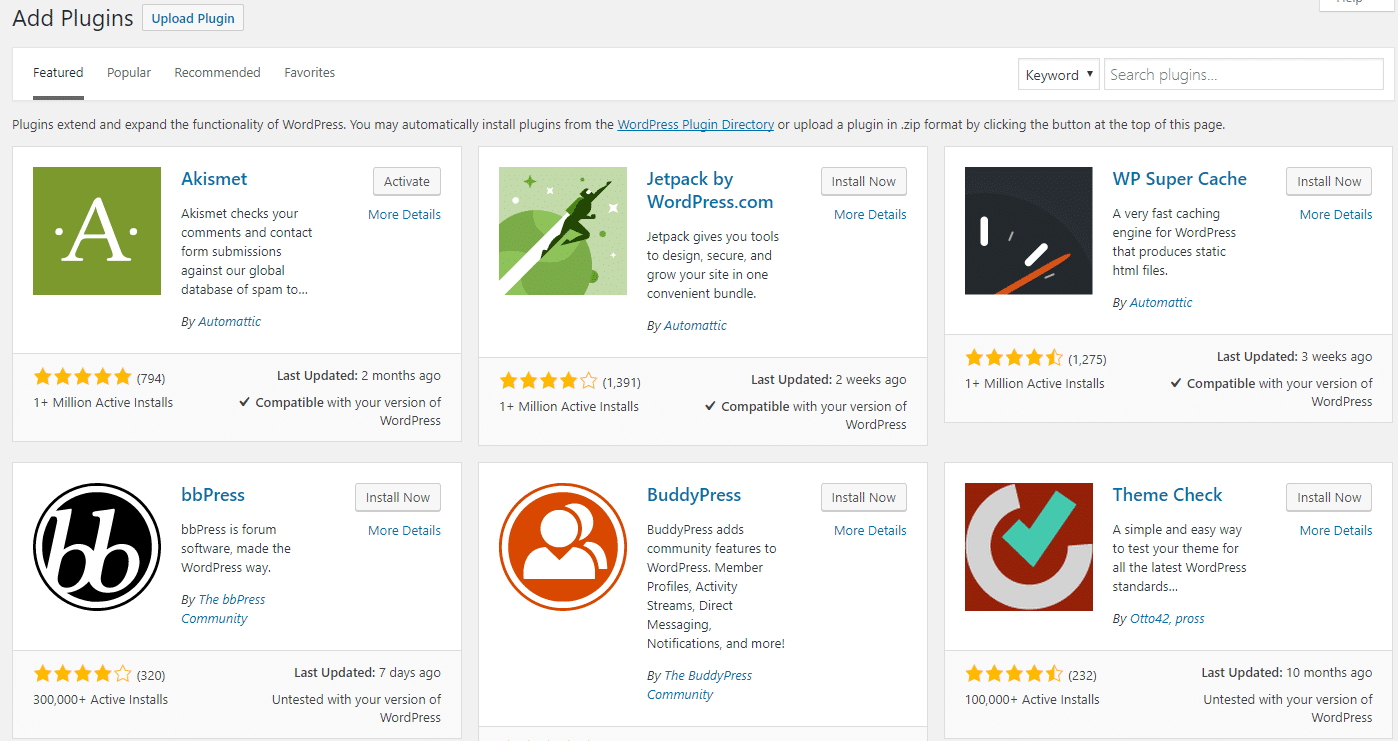
With WordPress offering a plethora of plugins, you have endless options, but there’s a tradeoff in quality assurance, especially with many free options. Some WordPress plugins have been targeted by hackers, posing a risk to your privacy. In contrast, Shopify’s premium apps offer better quality and security, providing more peace of mind.
To Sum up:
When it comes to quality, Shopify takes the lead. While WordPress offers a vast selection, sifting through to find the best ones can be a hassle. Shopify, on the other hand, offers higher quality apps and makes integrating them into your store a breeze.
Themes/Templates
Templates (or themes) are like the blueprints for your website. Instead of starting from scratch, you can use a template as a foundation for your design, making the process easier.
Shopify offers over 150 themes, but only 12 are free. The rest start at $60, but it’s a one-time payment that’s worth the investment. Plus, all Shopify themes are mobile-responsive, ensuring your site looks great on any device.

WordPress spoils users with over 12,000 themes. You’ll also find additional themes provided by plugins like WooCommerce or crafted by third-party developers.
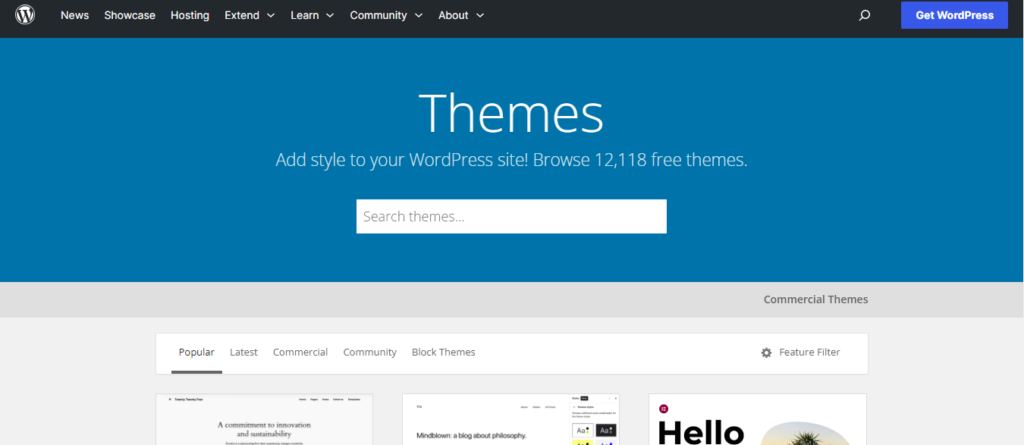
With such a vast selection, not all WordPress themes are created equal. Some may lack mobile responsiveness, and those not from WordPress itself might clash with updates. Nonetheless, with thousands to choose from, you’re sure to discover one that suits your style.
To Sum up:
WordPress takes the lead with its broader range of themes and more free options available.
SEO and Marketing
Shopify provides a dashboard to track your marketing efforts. It comes with built-in tools like Shopify Email for email marketing campaigns and contact forms to gather leads.

You can also advertise your store across multiple channels whether it is Instagram, Facebook, or TikTok thanks to Shopify’s sales channels.
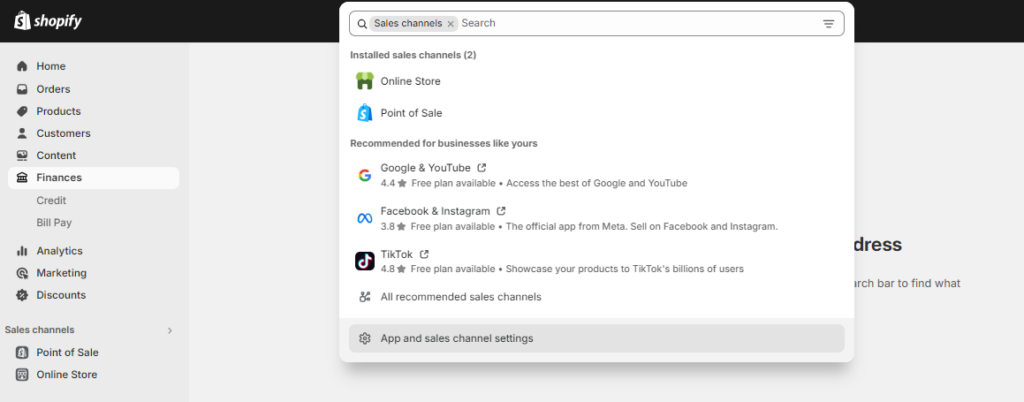
With Shopify, you get some SEO features, but for more advanced SEO capabilities, you’ll need to install additional apps.
On the other hand, WordPress offers a wide selection of marketing plugins and greater control over your SEO, thanks to its open-source nature.
Marketing plugins can be Hubspot, Mailchimp, or Pretty Links.
You also have the freedom to customize important factors like site speed and security settings directly. If you’d rather rely on a tool, Yoast SEO is a trusted option. It offers a free version, or you can opt for the advanced version with extra features for $10 per month.
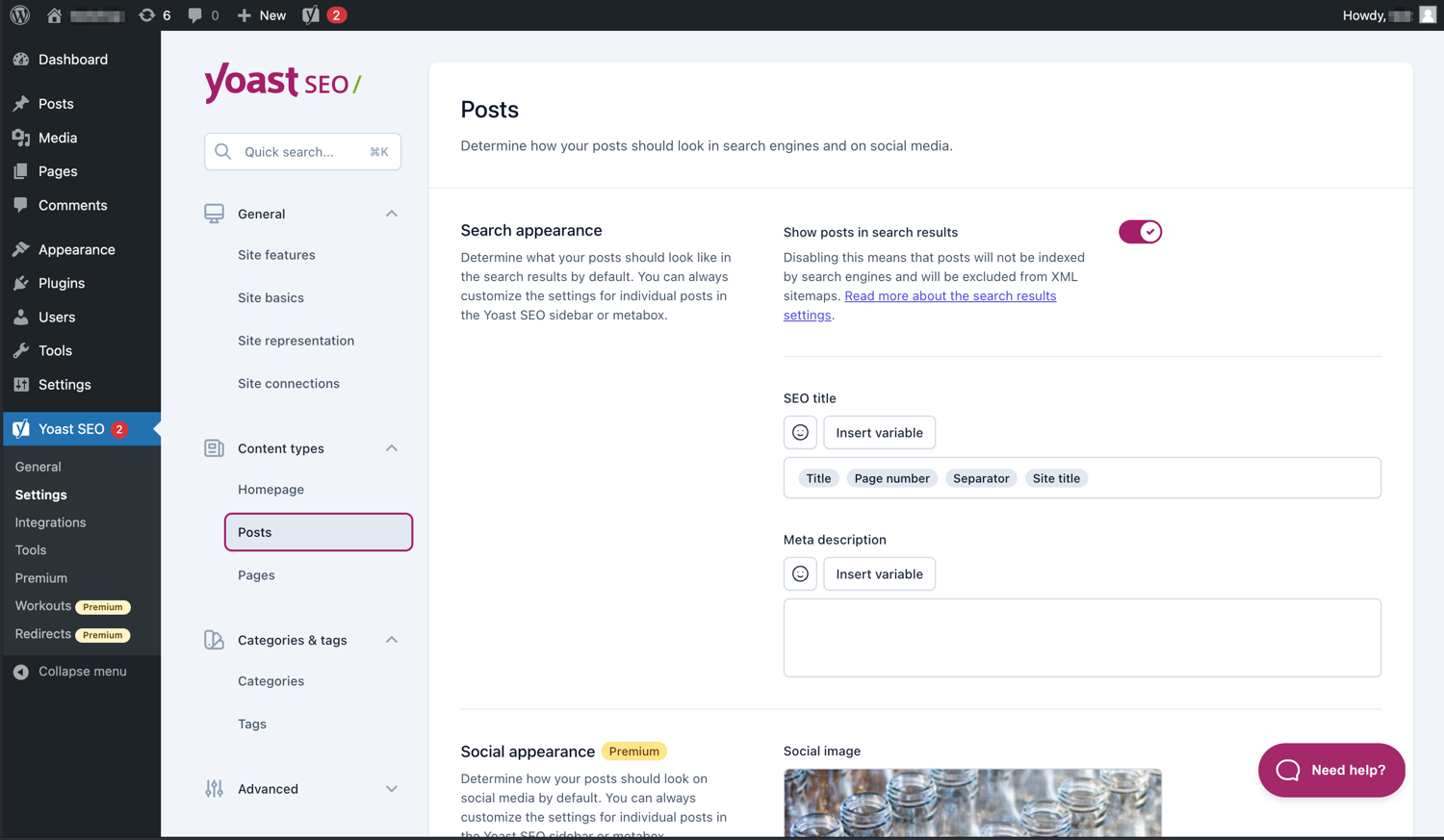
To Sum up:
Shopify offers convenient built-in tools, while WordPress’s open-source nature allows for more advanced techniques.
Security
Shopify ensures top-notch security, complying with the Payment Card Industry Data Security Standard (PCI DSS) and employing Secure Sockets Layer (SSL) encryption for data protection during transactions. Regular updates and fraud prevention tools further enhance security.
In contrast, WordPress security relies on hosting quality and user practices. Trusted plugins and prompt updates are crucial for safeguarding against potential risks.
To Sum up:
When it comes to security, Shopify takes the crown. With its managed platform, you can rest easy knowing your online store is well-protected against threats.
Support
Shopify offers top-notch customer support, with 24/7 assistance through live chat, email, and phone. Their responsive team and active community forums provide immediate help and insights, making it a go-to for those who value quick assistance.
WordPress relies on its vast online community for support, with numerous forums and blogs offering guidance. While its resources are plentiful, official support is limited to documentation, and users may need to rely on their hosting provider for assistance.
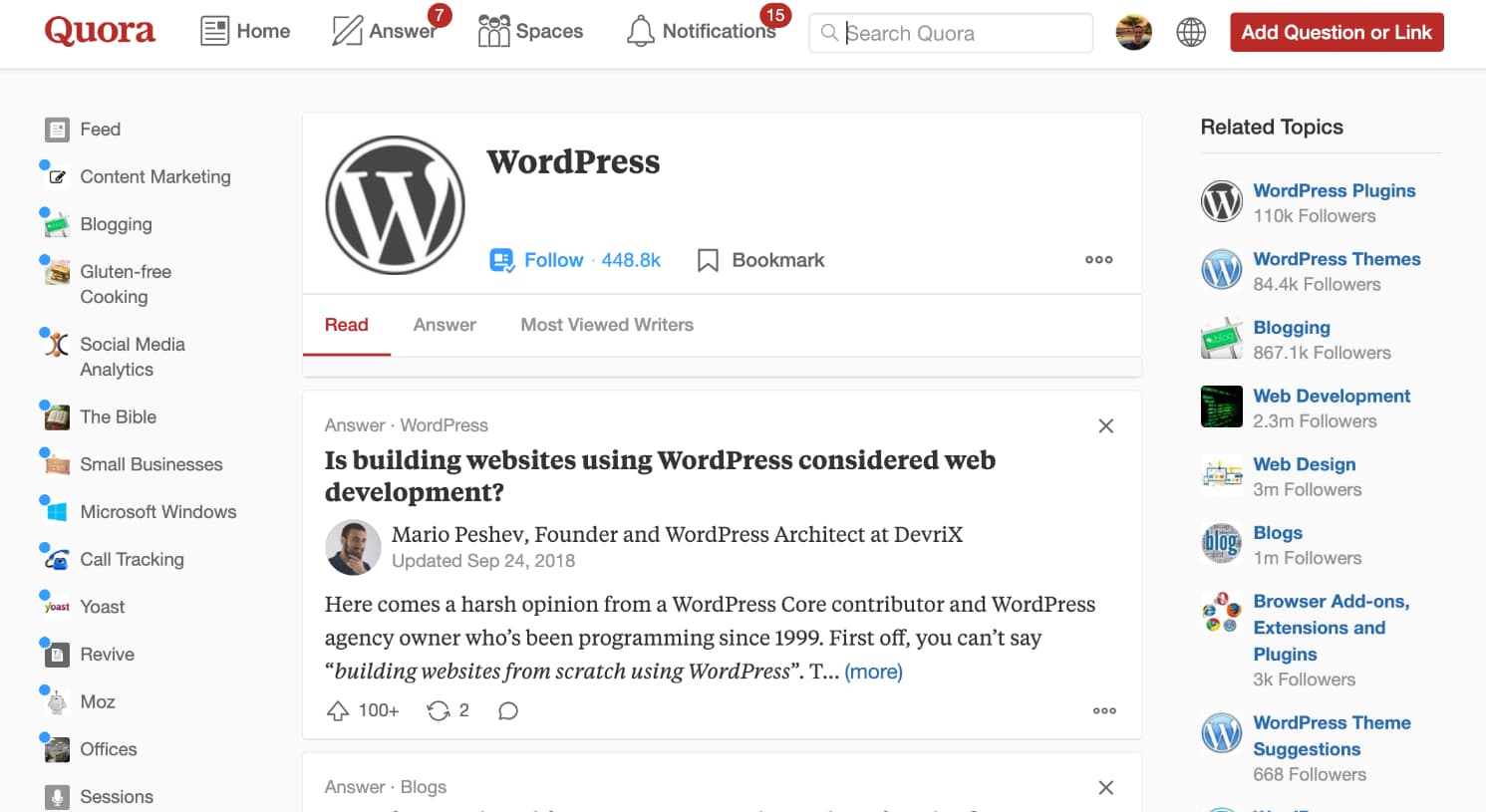
To Sum up:
Shopify wins for customer support with its dedicated 24/7 assistance through various channels, while WordPress relies more on its online community for support, which may not offer as immediate assistance.
Conclusion: Shopify Payments vs. WordPress – Which Is Better?
Choose Shopify if you:
- just starting out and don’t have much technical know-how.
- want a simple setup process and top-notch security.
Choose WordPress if you:
- want lots of customization options.
- comfortable with some configuration.
- prefer no-cost or affordable setup.
- need strong SEO and blogging features.
In the end, go with the platform that fits your needs, skills, and budget. Feel free to explore, gather information, and pick the tool that helps your online store succeed!
FAQs
Well, it really hinges on what you’re looking for in your online store. One standout plugin overall is WooCommerce. It’s made by the same company behind WordPress, packs tons of handy features, and can be used for free.
Absolutely! WordPress actually offers a Shopify plugin. This lets you apply a Shopify theme to your WordPress site, giving you ecommerce capabilities.
Yup, you sure can! Both platforms support selling physical and digital items. Yet, Shopify has specific built-in tools for selling physical products, while WordPress might need extra plugins for more intricate ecommerce setups.

